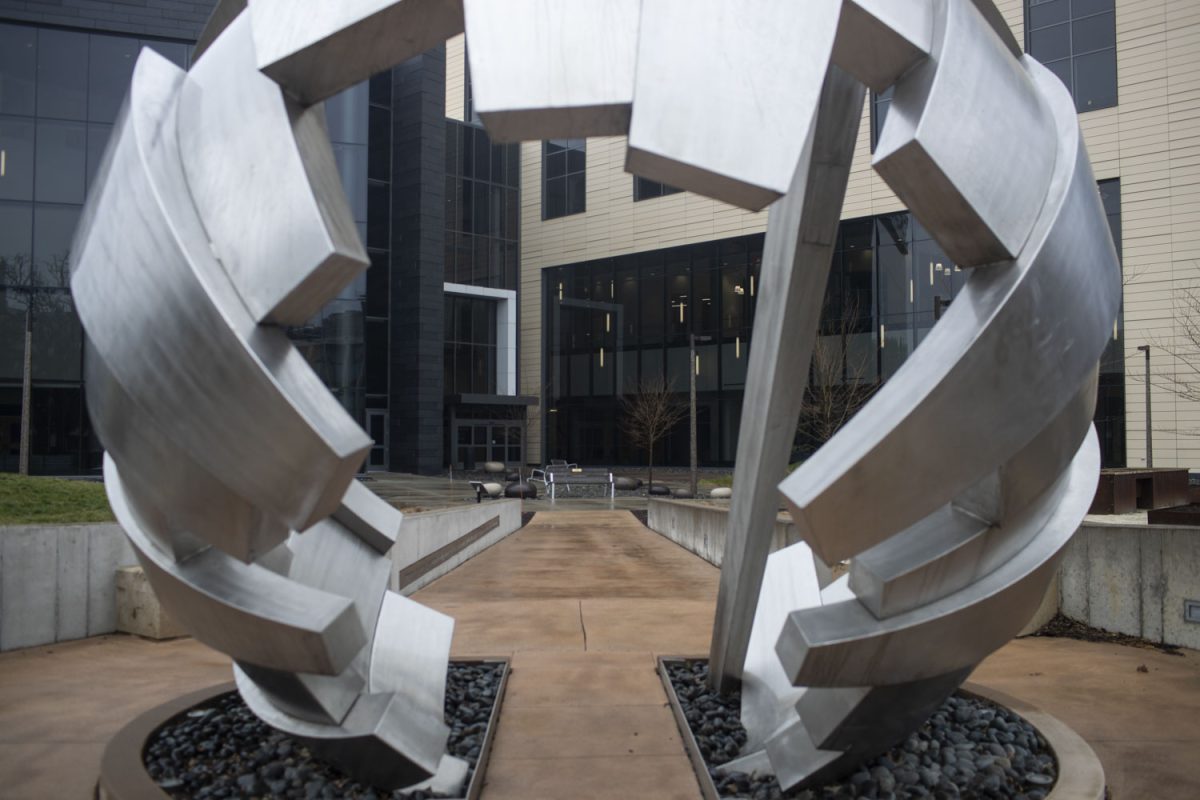The Iowa Supreme Court heard oral arguments on March 21 on an ongoing dispute between the University of Iowa and Cedar Rapids-based construction company Modern Piping.
Modern Piping originally sued the UI in 2018 for a wrongful injunction filed by the university against the company to reportedly gain early access to the UI Stead Family Children’s Hospital while it was still under construction. An injunction is a court order prohibiting a party from performing their specified duties.
Modern Piping also had issues with an agreement to settle a dispute involving a third party with the UI during the construction of Hancher Auditorium, which was completed in the fall of 2016. The piping company is asking the court for disgorgement, which requires a party who obtained wrongful or illegal profits to give up the money they made to the injured party.
Construction of both the UI Stead Family Children’s Hospital and Hancher Auditorium began in mid-2013.
The company argued that because the UI took over the hospital building early in the process, the university has made $12 million in profits that should technically have gone to the company because they were not officially off the job.
Since the initial disputes, Modern Piping has won roughly $13 million, with previous decisions from Iowa appellate courts ruling in its favor.
The UI’s attorney Tessa Register said in an oral argument on March 21 that the university has not continued to benefit from the arbitration delay caused by the injunction since the dispute began, as it has had to pay almost another $1 million in interest.
“The university is still not in possession of any property of Modern Piping’s that it received because of the injunction, nor has it retained any benefit it received because of the injunction,” Register said to the court. “So modern piping is not entitled to any unjust enrichment in this case.”
Register also said Modern Piping did not take the appropriate steps to claim arbitration and is attempting to combine two different instances that occurred at both Hancher and the children’s hospital and claim a correlation between the two.
She said the construction company’s breach of contract claim only states it should receive $2.5 million, but it did not exhaust that claim after the UI got an injunction.
“I think one of the challenging things in this case is the overlap between the breach and the injunction, but that’s really easily resolved because the injunction did not relieve any contract performance,” Register said to the court. “It didn’t bless a breach, there’s just no causal relationship.”
Modern Piping’s lawyer Mark Weinhardt said in his oral argument that the injunction reportedly greenlighted the contract breach.
He said the contract between the UI and Modern Piping allowed the university to occupy or partially occupy any part of the property by making an agreement with the construction property.
Weinhardt claims the UI reportedly never made an agreement and filed an injunction against the company instead, keeping Modern Piping from carrying out its job.
“The entire purpose of obtaining this injunction was to prevent an arbitration in reaction to the university’s desire to take over that space,” Weinhardt said during his argument to the court.
Iowa Supreme Court Justices Edward Mansfield and Christopher McDonald questioned why Modern Piping claimed disgorgement when the UI has always owned the land of the construction site and was expected to own the finished building.
“I’m still struggling with why disgorgement is the appropriate remedy,” McDonald said in court. “Modern Piping never had any entitlement to profits or revenue that the university made through the use of the hospital facility.”
Mansfield also questioned why the construction company should profit from the building site.
RELATED: UI, Modern Piping in court over Hancher and Stead Family Children’s Hospital projects
“If I had hired somebody to come do work in my apartment and they say ‘We’d like you to stay out for the day while we’re doing the work,’ and I say ‘Yes, sure, that’s fine,’ it doesn’t make it their property,” Mansfield said in court.
Weinhardt continued to state that the UI reportedly took out the wrongful injunction to “march into the building” and “take it back for free.”
“The contractor absolutely has the right to exclude the owner, unless under this contract, the contractor and owner get together and reach an agreement about partial occupancy,” Weinhardt said in his argument. “The university’s express reason for getting this injunction was so that they wouldn’t have to do that.”
There is no specific date set for when the Iowa Supreme Court will decide the outcome of the case.



